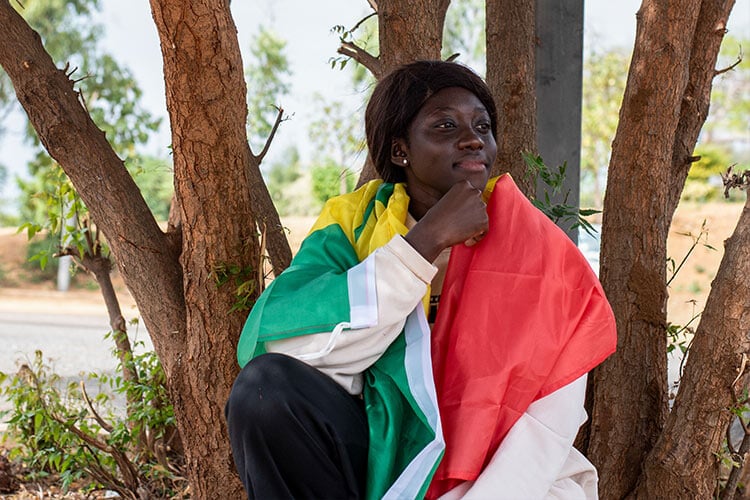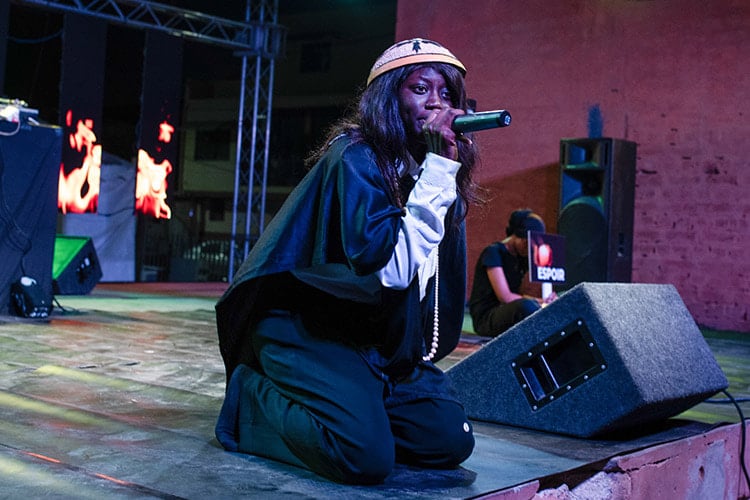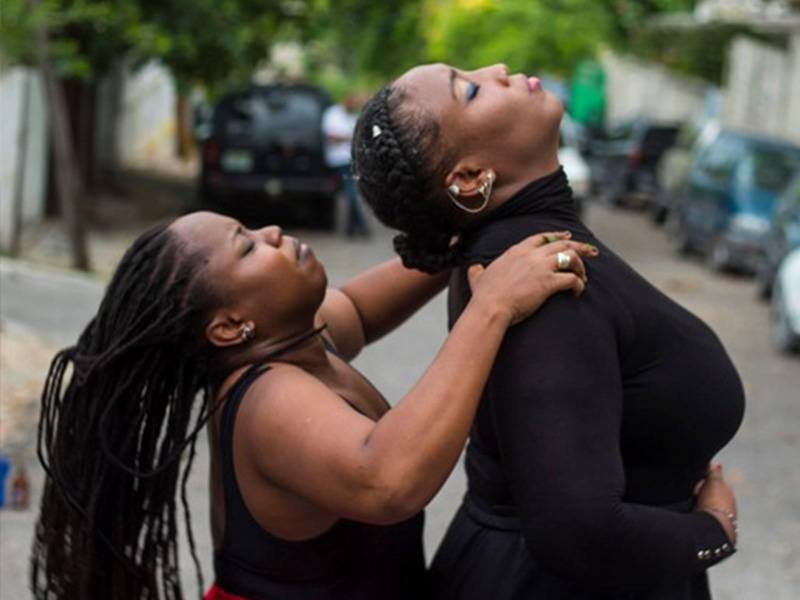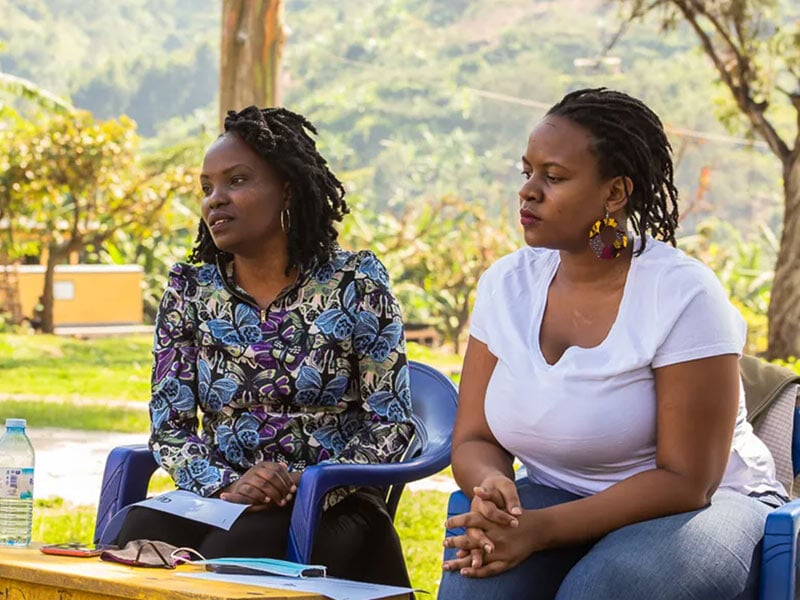Hello to AJWS’s community in the United States —
My name is Sokhna Djitte. I’m a 22-year-old student and a slam poet from Senegal — I recently performed as a finalist in a national competition held by Y’en a Marre, an AJWS partner organization.
I’m writing to tell you how AJWS has profoundly impacted my life, before I even knew what AJWS was. And I’m writing today because I know the Jewish holiday of Purim is approaching, and this holiday speaks to me deeply.
I hope my story speaks to you as well.
I was born into a big family; my father has four wives, and 24 children. I was a shy child, and spent much time in the hospital, where I coped with isolation and loneliness through writing. In school, I was perpetually teased, nicknamed “coal” because of my dark black skin. And as a young woman, I learned my place according to society: we are wives and mothers, meant to remain in the kitchen without dreams of our own.
But as a teen, I joined a workshop held by L’Association des Juristes Sénégalaises (AJS) — an organization of women’s rights lawyers — educating us about gender-based violence and female genital mutilation. I had no idea this group was an AJWS partner at the time. I continued learning with AJS for three years: about leadership, reproductive health, and even public speaking. I remember thinking: Society says we belong in the kitchen, when we were the queens of empires across Africa? It’s hypocrisy, and I could no longer stand for it.
My writing changed, too. I began using my words to inspire and educate other young women about their rights, about the limits society enforces on us. I started performing slam poetry under the name Ashkon (it’s an anagram of my name!). As Ashkon, I’m fierce — I dare to tell the truth, and I denounce injustice without fear.
Last year, I heard about Y’en a Marre’s Citizen Mic program — a national competition for slam poets and rappers who write about things that really matter: social justice and democracy. And I made it to the finals! In December, in front of hundreds of young people, I performed a piece about reshaping Senegalese society — to truly be a country of justice, democracy and equality for everyone.
And that brings me to Purim. I know this holiday celebrates Queen Esther — another strong, powerful woman — speaking the truth to powerful men. This message is just as relevant today as it was in ancient times. As long as there are people keeping women down, we will keep rising up to reclaim our power.
My life has changed thanks to two amazing groups of activists in Senegal — two AJWS partners. That means by supporting AJWS, you have changed my life. Thank you for standing with AJWS — and helping women around the world to fight for their rights, and know they are queens.
Sokhna/Ashkon






